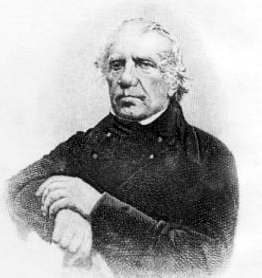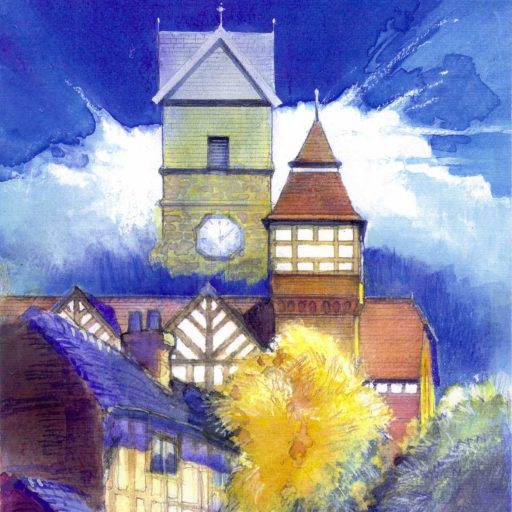 Samuel Bamford (28 February 1788 – 13 April 1872) was an English radical and writer, who was born and lived in Middleton, Lancashire.
Samuel Bamford (28 February 1788 – 13 April 1872) was an English radical and writer, who was born and lived in Middleton, Lancashire.
Bamford was one of five children born to Daniel Bamford, a muslin weaver, part-time teacher, and later master of the Salford workhouse, and his wife, Hannah. After his father withdrew him from Manchester Grammar School Bamford became a weaver, and then a warehouseman in Manchester. In 1817 he was imprisoned in the New Bailey Prison in Salford on suspicion of high treason (this was on account of his political activities). From there he was taken to London and examined before the Privy Council presided over by Lord Sidmouth. After promising to be of future good behaviour he was released and was then able to return to live in his cottage at Middleton with his wife Jemima.
In August 1819, Bamford led a group from Middleton to St Peter’s Fields, to attend a meeting pressing for parliamentary reform and the repeal of the Corn Laws, where they witnessed the Peterloo Massacre. Bamford was arrested and charged with treason. Although the evidence showed that neither he nor any of his group had been involved in the violence, he was nevertheless found guilty of inciting a riot and sentenced to a year in Lincoln gaol. The experience of the massacre made a deep impression on Bamford, and convinced him that the state’s power would always succeed against radical militancy. He came to be seen as a voice for radical reform, but opposed to any activism that involved physical force.
Bamford was the author of poetry (mostly in standard English) but of those in dialect several showing sympathy with the conditions of the working class became widely popular, and his Passages in the Life of a Radical (1840 – 1844) is an authoritative history of the condition of the working classes in the years after the Battle of Waterloo. He also compiled The Dialect of South Lancashire (Manchester: John Heywood, 1850). He died at Harpurhey on 13 April 1872 and was given a public funeral, attended by thousands. A memorial obelisk was unveiled in Middleton Cemetery in 1877. Part of the inscription reads: “Bamford was a reformer when to be so was unsafe, and he suffered his faith.”


